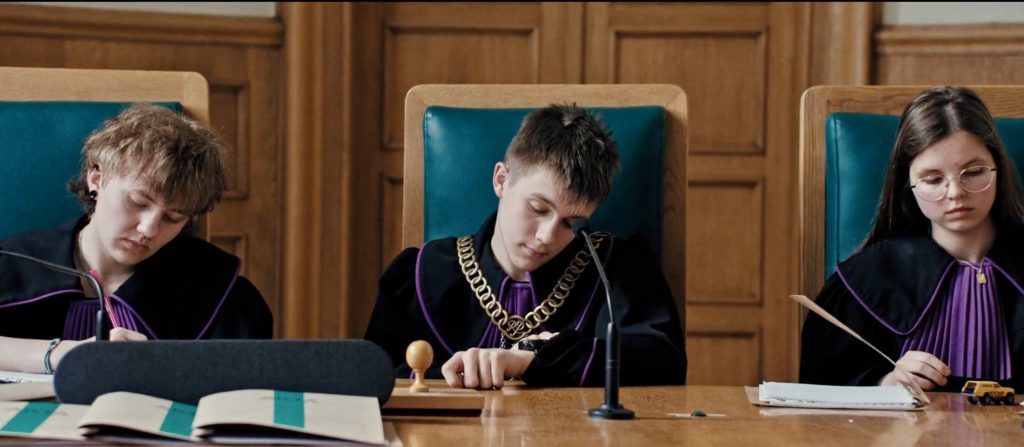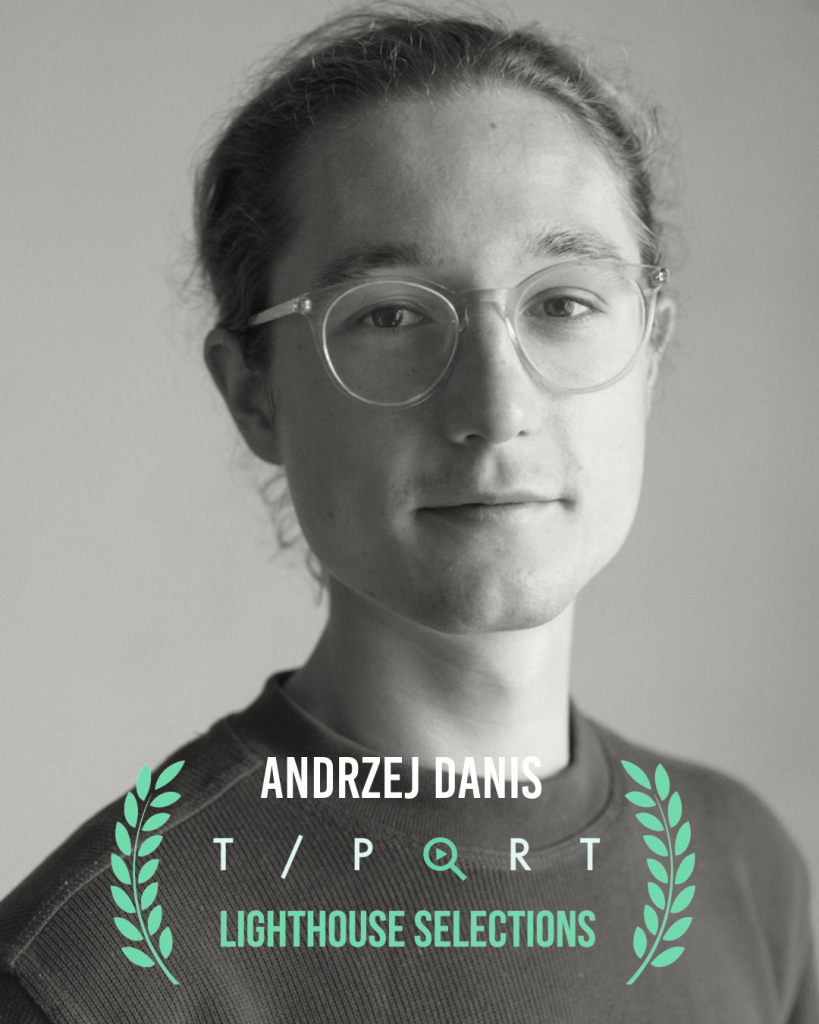 Polish filmmaker Andrzej Danis made his documentary DEBTORS (Zadłużeni) as his graduation film from the Polish National Film and Television School in Lodz, based on his own family history. His short caught the eye of our guest curator Kasia Karwan, for the 2025 T-Port Lighthouse Selections.
Polish filmmaker Andrzej Danis made his documentary DEBTORS (Zadłużeni) as his graduation film from the Polish National Film and Television School in Lodz, based on his own family history. His short caught the eye of our guest curator Kasia Karwan, for the 2025 T-Port Lighthouse Selections.
We chatted to the filmmaker about the personal meaning behind his film, how he ended up creating his own soundtrack, and why he wants to make his audience cry.
Hi Andrzej, could you introduce yourself?
I was born in 1993 in Warsaw, and I’m a graduate of Cultural Anthropology at the University of Warsaw and Film Directing at the Polish National Film School in Lodz. My cinema combines genres, special effects and psychoanalysis. And I’m in love with Leos Carax movies.
If you could watch one film forever on a loop – what would it be?
“Magnolia” by Paul Thomas Anderson
How many films have you made before this one, and what did each new film teach you?
Before I made 3 short films and each told me to look primarily for joy, both for me and for the audience. And also to trust people who are smart.
Do you affiliate yourself with any cinematic or artistic movements, or see yourself as fitting in with any?
Maybe not a movement (yet?) but with a certain notion that every good piece of art is political (one way or another)
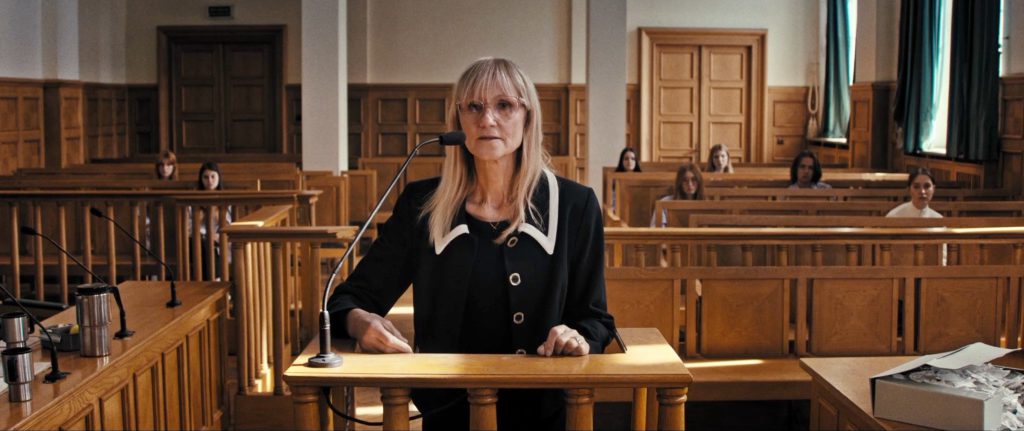
How did you first start working on this film? What was the process like and what first sparked the idea to make it?
It’s a personal story, which began closely related to my therapy and relationships with members of my family. But very quickly I had a desire to see similarities with other peoples’ personal affairs and to paint a picture of a bigger system. That is usually what journalists do but we didn’t want to just make a journalistic film, we were aware that we need to find some metaphors, maybe not obvious ones, but ones that will work on an emotional level and make it universal.
What would you like people to take away from your film?
Well, I think it should work primarily on an emotional level, so I am always satisfied the most when someone tells me that it made them cry. But the story is also about how in Poland, law allows injustice. I think people from other countries can relate to that too.
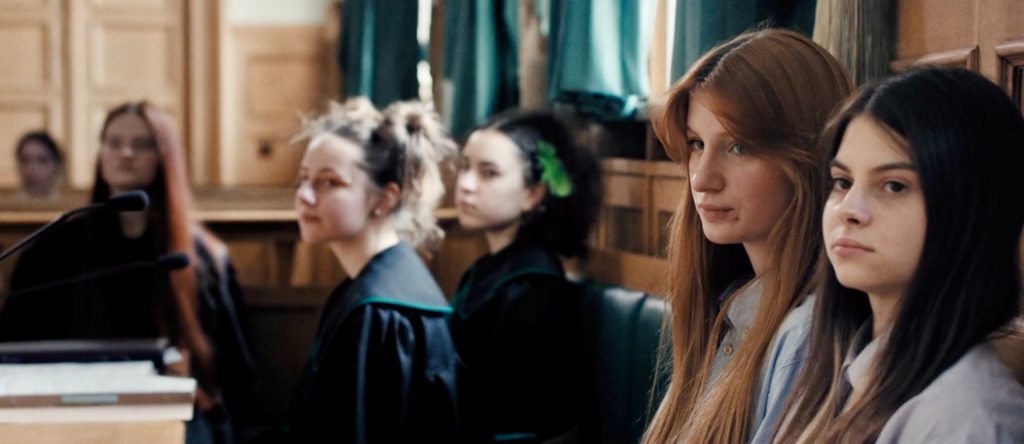
Once you had the idea – how did you go about the production process?
As a graduation film we had all the wonderful equipment the film school can give you and all the wonderful time restrictions that make you work hard and fast. Sometimes we were shooting first and thinking later. I know it is a mindset many filmmakers criticise but I found it absolutely freeing. Of course I was lucky to have an editor who knew well what would work best from the footage we were giving him.
What were the biggest challenges you encountered during making your film?
I think it is always, more or less, the same challenge: to make it all make sense. But at the same time not be too in your face, leaving some space to dream, to conclude, and to laugh.
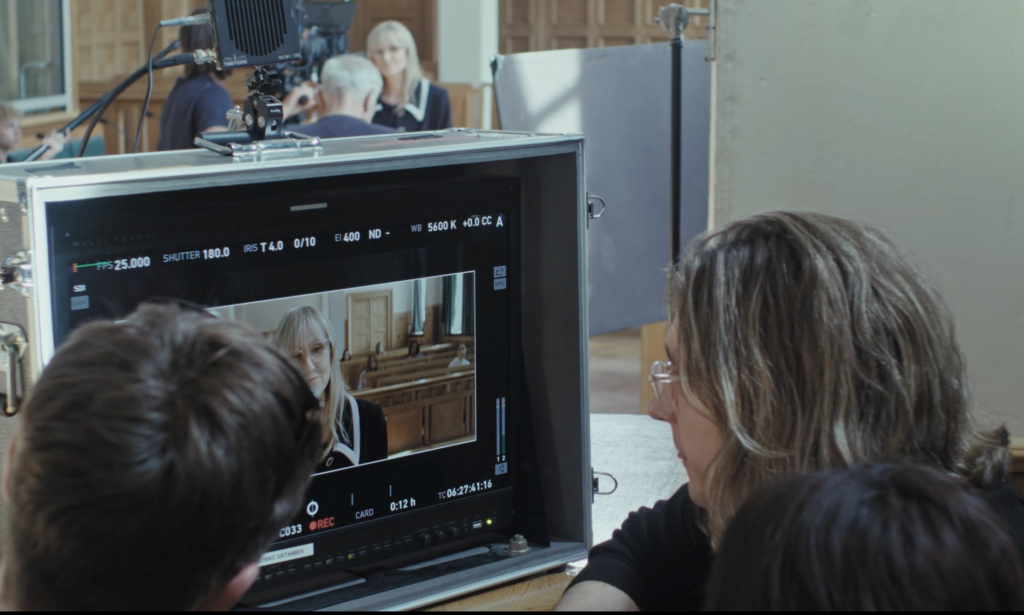
How was it to collaborate with your cast and crew? Have you formed any particular meaningful connections?
Yes, definitely. Me and Benek Niedzielski (the editor) have worked together throughout our studies so it was very natural. But with Desi Kunsa (DOP) and Ania Nesteruk (producer) it was the first time and luckily enough we still like each other and are proud of the film.
Tell us about the sound choices in your film?
I play piano and at the same time as we were editing I made some piano sketches for my editor, just to play around with it. Later we were supposed to find a proper composer, but I guess my ego took over and we stayed with my composition, enhanced it with help of our sound designer, and it worked!
What were your main goals and techniques in creating the visual style of your film?
Part of the film is just people telling stories, so it’s very basic talking-heads. But the other part is a fantasy of children taking over the court, so it had to be very cinematic – wide screen, proper lights and dollies.
What would you do differently if you could go back and do it again?
Make it longer! But it’s a short film so I guess short is fine.
What’s next for you?
Fiction for sure. I hope, I pray for that. But I am still reading a lot about the child support situation and meeting new people engaged with it, so who knows, maybe a new documentary will someday emerge.
Submit Your Short To T-Port Today
T-Port films are only accessible to professionals, so your premiere status will not be affected.Stake your place in the next generation of filmmakers waiting to be discovered for only 15 Euros / year.
Find out more on our website and get started with T-Port today.
Or sign up for our newsletter to get regular updates on the current trends and exciting innovations in the short film universe.

